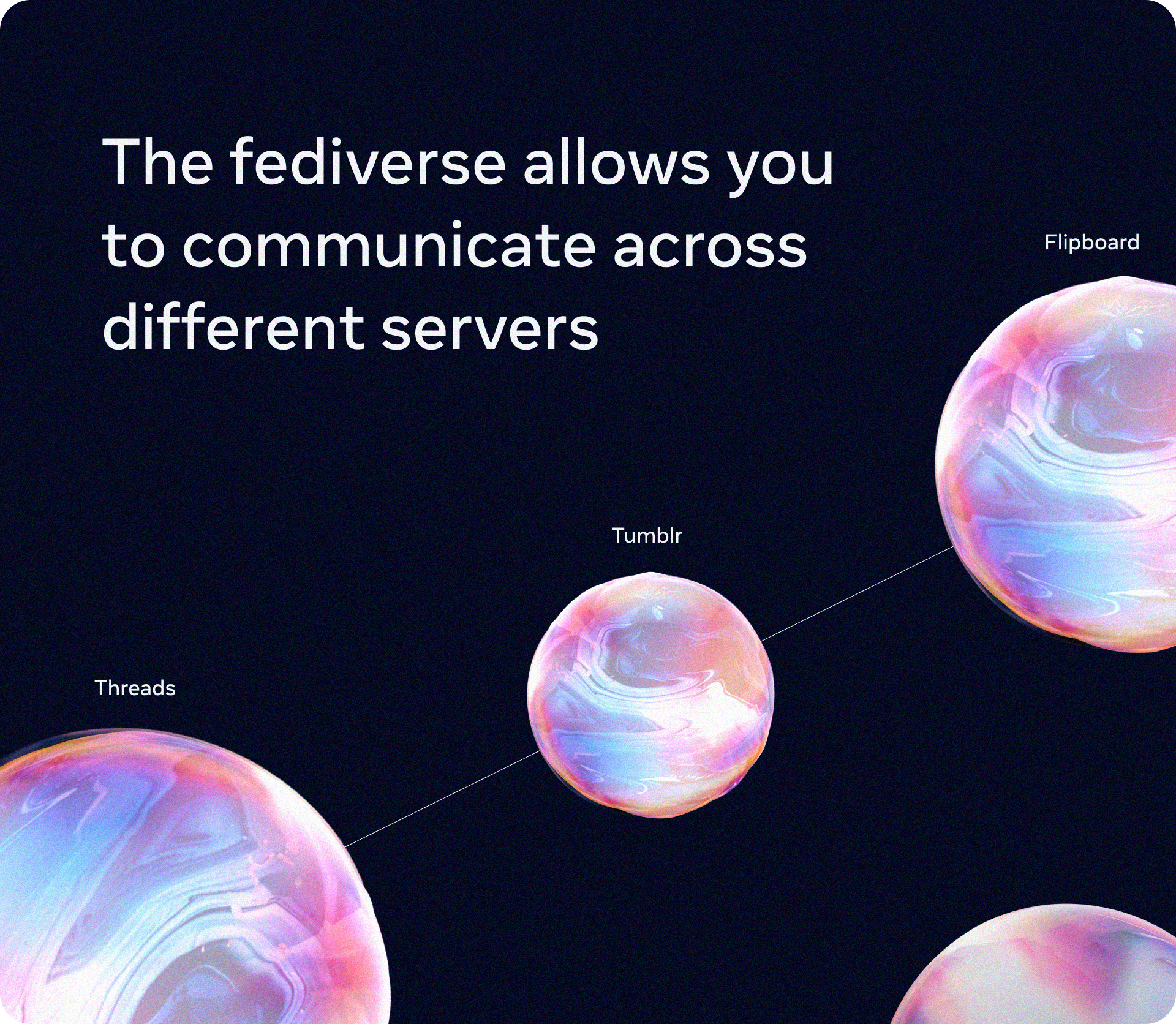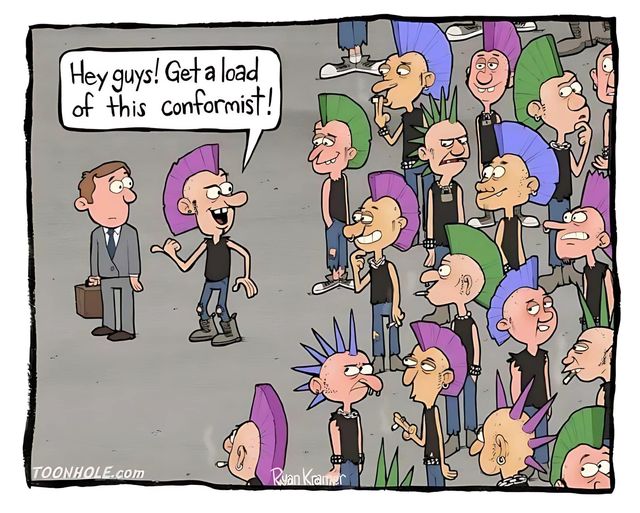There is #mainstreaming criticism that the #fediverse has “anti-viral” features, as there is no central algorithm promoting specific content to go viral, but this is not entirely accurate. What this actually points to is a deeper issue within the social path of the #openweb itself. There is a social push in this “native” path, that “anti-viral” isn’t about a lack of features; it’s about how certain structures and behaviours are actively discouraging people with larger reach from thriving in these “native” spaces.
It’s a people to people web, so huge accounts can’t and don’t talk back, so can’t be “native” to this path. It’s not a question of choice, rather a question of path. It might be useful to think about this, as these conversations being #blind to thinking outside their current #dotcons path, and thus unknowingly bring it into the openweb reboot.
The problem with the talk of “Anti-Viral” is pushed up by current outreach. When people say that the Fediverse lacks virality, they are focusing on the absence of centralized algorithms, found on corporate platforms (the #dotcons). On those, algorithms drive engagement by amplifying sensational and emotionally charged content, at the cost of meaningful discourse and ethical considerations. In contrast, the Fediverse is praised for being different, more community focused, more human scale, and more about interaction rather than manipulation by algorithms, however, this is still a perspective missing a crucial point.
What we are actually seeing is that the Fediverse has developed social norms and features that end up pushing away people who “go viral” or have large followings. The problem isn’t just that the platform lacks virality; it’s that it lacks the infrastructure and culture to support people with large followings in a way that feels sustainable and meaningful. Large Accounts don’t thrive, by design.
The #openweb and #fediverse are built on the principles of decentralization and #DIY community, which are fantastic for fostering small, intimate interactions. However, this structure makes it difficult for larger accounts to function. Why? Because the social architecture is inherently hostile to large-scale influence based on one way broadcasting.
- Large accounts can’t engage meaningfully with their followers in a people-to-people web. When you have thousands of people interacting with your posts, it becomes impossible to engage in a way that aligns with the native path that is part of the code of the #fediverse.
- Without centralized moderation, content moderation is a community effort. This can mean that people who attract controversy, whether deserved or not, increase the instance workload, creating a practical culture that is inhospitable to “big voices” paths and agendas.
The “People-to-People” Web is set up to favour small-scale interactions and communities over larger, more influential voices who are more normally broadcast media focused. This is both good and bad, yes it can be a problem when we think about the kind of impact we want the #openweb to have. In this, It’s not about changing the current path but creating parallel ones, the solution, we need to move beyond the #stupidindividualism of copying the microblogging of the #dotcons and think of balancing with “native” oprochs to media, the #indymediaback project is an example of this path, which we do need to take.
Broadcast media is not social media, we need to build out the Fediverse with this in view.
———————————–
The Myth of “Anti-Viral” Fediverse: A Path Problem, Not a Feature Problem
There is a common #mainstreaming criticism that the #Fediverse has “anti-viral” features—meaning it lacks a central algorithm that promotes content to go viral. While this may seem accurate on the surface, it actually points to a deeper issue within the social path of the #openweb itself.
The notion of “anti-viral” isn’t just about missing features; it’s about how the social structures and behaviors of the Fediverse actively discourage large accounts from thriving in these “native” spaces. It is a people-to-people web, which means that huge accounts—those with thousands or millions of followers—cannot meaningfully engage with people at scale. It’s not a matter of choice but of structural design.
This is important to understand because much of the conversation around “anti-viral” fails to step outside the #dotcons path. People coming from corporate social media unknowingly bring their assumptions with them, expecting the Fediverse to function in the same way.
What “anti-viral” really means, critics, focus on the absence of centralized engagement-driving algorithms—the kind found on corporate platforms (#dotcons). These algorithms prioritize sensational, emotionally charged, and controversial content to maximize user engagement. In contrast, the Fediverse is structured to be more community-focused, human-scale, and interaction-driven rather than manipulated by algorithms.
However, this framing misses a crucial point, the issue isn’t just about missing algorithmic amplification, the Fediverse has developed social norms and features that actively discourage large accounts from thriving. Large accounts don’t fail due to a lack of virality—they fail because the culture and infrastructure aren’t designed to support them.
Why large accounts struggle on the fediverse, the #openweb and #Fediverse are rooted in decentralization and #DIY community-building, which are fantastic for fostering small, intimate interactions. However, this same structure makes it difficult for large accounts to function, because:
- The People-to-People Web Doesn’t Scale for One-Way Broadcasts, Large accounts cannot engage meaningfully with followers in a way that aligns with the native interaction path of the Fediverse.
- If thousands of people interact with a post, it’s impossible to respond in a way that fits the small-scale, community-driven ethos.
- Content Moderation Is a Collective Effort, Not a Centralized One, Without centralized moderation, controversial accounts create workload pressure on individual instance admins. More controversy = more moderation burdens, making the Fediverse structurally inhospitable to high-profile users.
- The “People-to-People” Web Prioritizes Small-Scale Interactions, The architecture favours small, engaged communities over mass broadcasting. This is great for community resilience but limits the ability for larger voices to exist organically.
Beyond #StupidIndividualism: Creating Parallel Paths Instead of Copying #Dotcons
If we want the #openweb to have an impact, we can’t just copy the microblogging model of the #dotcons and expect a different outcome. The Fediverse doesn’t need to change its current path, but it does need to parallel paths that allow different media approaches to thrive alongside it.
One solution? #Indymediaback.
The #IndymediaBack project provides an alternative approach to publishing that isn’t locked into the “social media” framing of the #dotcons. Instead of trying to make the Fediverse work like Twitter, we need to build native, federated broadcast media that works within the #openweb values.
Broadcast Media ≠ Social Media. To build a thriving #openweb, we need to stop treating broadcast media and social media as the same thing. Instead, we should:
Develop media models that work at different scales rather than forcing one system to do everything. Support federated, trust-based networks where large voices can operate in ways that fit the architecture. Think beyond the “individual” model of content production—this isn’t about one person going viral, it’s about building resilient, collective media structures.
The Fediverse isn’t broken—it just isn’t designed for the kind of viral engagement that corporate platforms push. If we want large-scale influence on the #openweb, we need to build native alternatives instead of trying to force the wrong models onto it.







